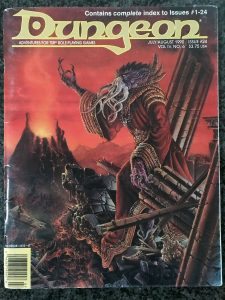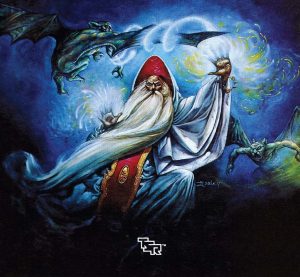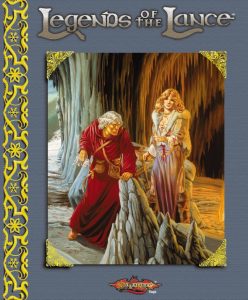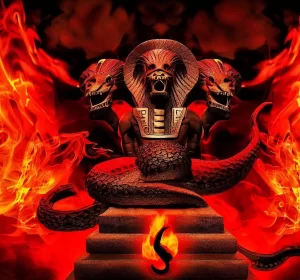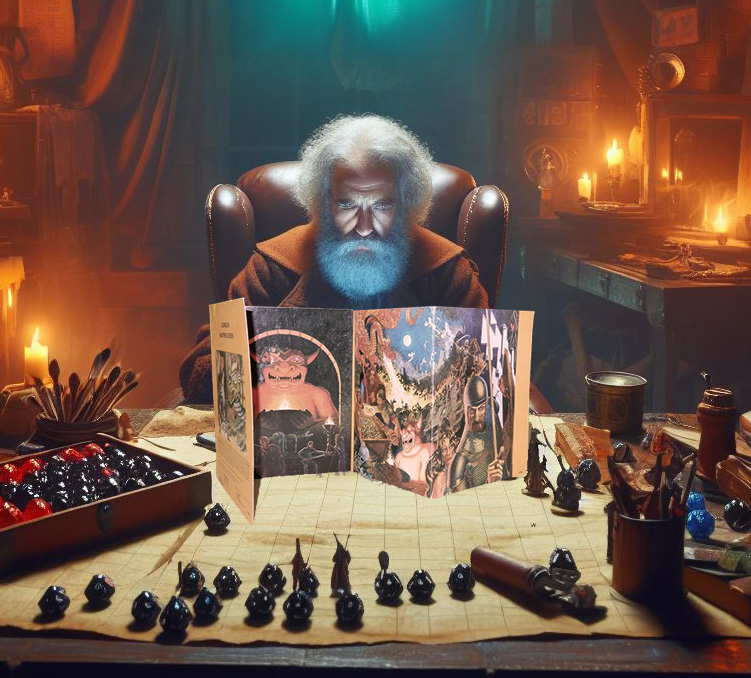
Your Dungeon Master Craft
Dungeons & Dragons is an intricate dance of desire, skill, and luck. While it may seem like a mere game, the role of the Dungeon Master transcends conventional game mechanics. Crafting an engaging, dynamic world teeming with challenge and wonder is an art, but it's also a science that involves rule management, risk assessment, and situational adaptability.
Dungeons & Dragons is far more than a board game with dice, miniatures, and rulebooks; it's a complex ballet of desire, skill, and luck that unfolds in imaginative settings. At the very core of this universe is the Dungeon Master, a role that goes well beyond what conventional game mechanics could ever encapsulate. The Dungeon Master is simultaneously the storyteller, the rule enforcer, and the world-builder, an amalgamation of roles that transcends the written page or the roll of the dice.
While it's easy to view D&D as just a form of interactive entertainment, the true gravitas of the game comes from the deeply rooted desire of the participants. Players yearn for adventure, for challenges that test the limits of their ingenuity, and for narrative arcs that provide emotional richness. This desire is ignited and sustained primarily through the DM's ability to weave compelling stories, ethical dilemmas, and complex puzzles, making the game's universe an endless playground of possibilities.
But if desire serves as the spark, skill is the fuel that keeps the D&D engine running smoothly. Skill in this context does not merely pertain to a player's understanding of the rules, or their ability to concoct a clever combat strategy. It also involves how they apply this knowledge to navigate the intricate, dynamic world created by the Dungeon Master. A skilled player knows how to adapt, taking cues from the DM's narrative to make choices that are both inventive and plausible within the game's lore. Likewise, a proficient Dungeon Master will possess a deep understanding of the game mechanics, and have the ability to implement them in ways that serve the story without undermining its challenges.
Luck, while an undeniable factor, serves more as the seasoning than the main course. In a game where dice rolls can determine the outcome of a life-and-death battle or the success of a crucial negotiation, luck can certainly make things exciting. But luck alone can't sustain the complex narrative arcs and the emotional involvement that makes D&D so compelling. Overreliance on luck would turn the game into a mere gambit, devoid of the depth that comes from skilled role-playing and meaningful decision-making.
However, the role of the Dungeon Master is not just an amalgamation of these elements; it is an art form that involves a keen understanding of human psychology, narrative structure, and even a bit of theatrical flair. And yet, it's also a science that requires meticulous planning, rule management, risk assessment, and the ability to adapt when the unpredictable nature of player choices throws a wrench into the works.
The DM has to balance being a neutral arbitrator with being an engaging storyteller. They must master the mechanics of rule sets, while also being prepared to bend or even break those rules when the narrative calls for it. It's about knowing when to challenge the players, how to incentivize creativity, and when to let the chips-or dice-fall where they may.
In sum, Dungeons & Dragons offers an elaborate dance that blends human desire, skillful execution, and the unpredictability of luck, all orchestrated by the Dungeon Master. It's a role that elevates the game from a simple pastime to an incredibly rich, complex experience that can be as intellectually rewarding as it is emotionally fulfilling.
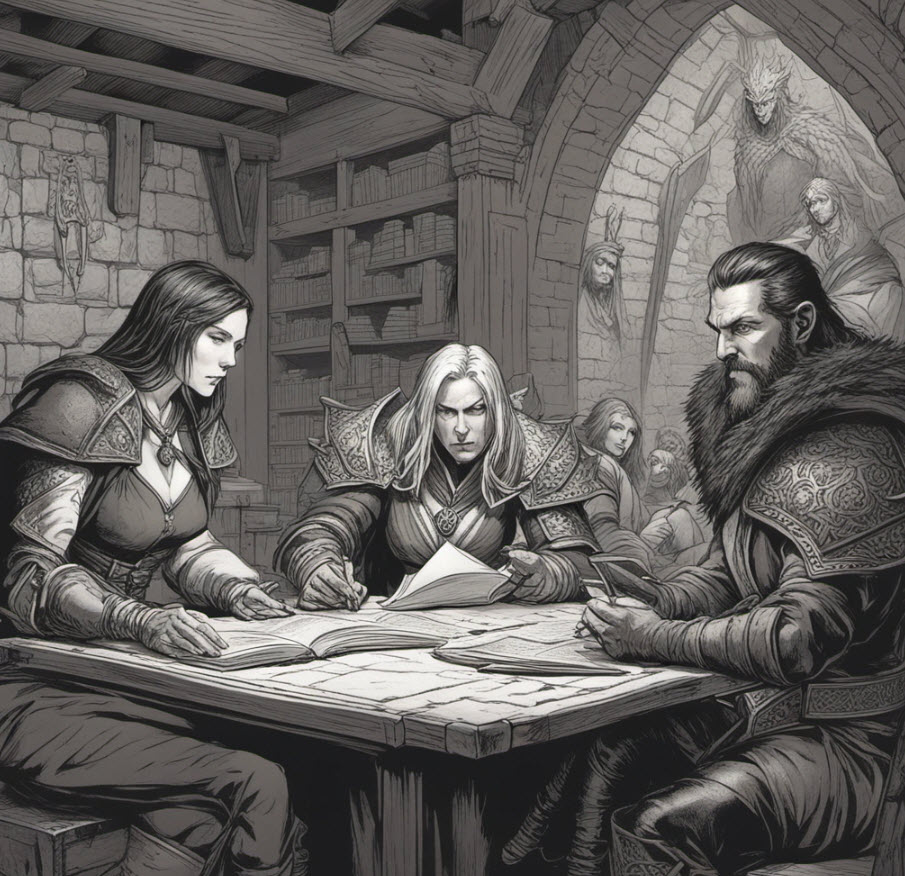
The Three Pillars of Gameplay
Desire
The first element that fuels the game is the desire to participate. This often ignites within players during their first encounters, but its longevity is predominantly a testament to the DM's proficiency in crafting an engrossing, challenging story. A lackluster campaign led by an ineffectual Dungeon Master will snuff out this desire quicker than a fireball spell in a methane cave.
Skill
The second pillar is the players' understanding of the rules and how they interact with the DM's vision. It's more than just about memorizing rulesets and lore. Skill in D&D is about applying that knowledge creatively within the framework established by the Dungeon Master.
Luck
Contrary to widespread assumptions, luck is not the cornerstone upon which the foundations of a fulfilling Dungeons & Dragons experience are built. While it's true that a well-timed critical hit or a fortuitous roll can dramatically swing the tide of battle and provide a moment of elation, these serendipitous events are merely the icing on the cake rather than the cake itself. Depending solely on the whims of dice to navigate the multifaceted challenges and intricate story arcs of an entire D&D campaign is not only unwise but also profoundly diminishes the game's depth and complexity.
The role of luck should not be completely disregarded, of course. Those magical moments when the dice fall just right can create unforgettable stories and serve as bonding experiences for the player group. These flashes of good fortune add a layer of excitement and unpredictability that enriches the overall narrative, injecting it with the kind of spontaneity that even the most skillful Dungeon Master could not script.
However, overreliance on luck can lead to a skewed perception of achievement and progression. Players may begin to feel as if their choices don't truly matter, as their fate appears to hinge solely on a series of random dice rolls. This approach not only disengages players but also places undue pressure on the Dungeon Master to create scenarios where luck plays an increasingly significant role, thereby reducing the importance of skillful role-playing and well-thought-out strategy.
Instead, the most enduring rewards of a D&D campaign come from the sustained application of skill, deep understanding of the game's mechanics, and a comprehensive engagement with its thematic depth. Players who strategize, who leverage their characters' abilities thoughtfully, and who immerse themselves in the rich lore of the world are far more likely to experience a satisfying journey. Moreover, a Dungeon Master who is adept at balancing challenge and reward, while creating a coherent and captivating storyline, elevates the experience from a game of chance to an art form of interactive storytelling and collective creativity.
In essence, while luck can certainly bring moments of thrill and surprise, it is but a single thread in the intricate tapestry of a Dungeons & Dragons campaign. Skill, strategy, and story engagement are the more substantial fibers that provide the campaign its form, texture, and enduring appeal.
The Illusion of Success
It's easy to misinterpret a high-level character as an indicator of successful gameplay. However, an abrupt rise in level often points to a Dungeon Master's shortcomings rather than players' capabilities. When DMs saturate their dungeons with magic items or make outdoor quests treasure hunts, they risk spoiling the game's economy and its built-in challenges. Overly generous awards of experience points can result in bloated, hubristic characters who haven't earned their status.
The Symbiotic Relationship of DMs and Players
While the Dungeon Master crafts the world, it's vital that the campaign be molded to the tastes and expectations of the players. A DM's temptation to make their world a magical wonderland might seem like a kindness, but it can also strip away the game's inherent challenges and reduce it to a hollow, unsatisfying experience. DMs need to strike a balance, maintaining a world that is both challenging and rewarding.
The Role of Dispassionate Arbitration
As the ultimate arbitrator, a Dungeon Master must exercise impartiality. Even if your favorite player makes a fatal blunder, let the dice determine their fate. Exceptions can be made for undue misfortune, but these should be rare. DMs are not parental figures here to shield players; they are storytellers and facilitators of a fair game.
The Importance of Worldbuilding
To maintain a campaign that continues to captivate your players, infuse your world with depth. Whether it's a local tavern's backstory or the complicated politics of a wizard's guild, these details enrich the experience. The inhabitants of your dungeons should have personalities, motivations, and strategies. They're not merely experience points waiting to be collected.
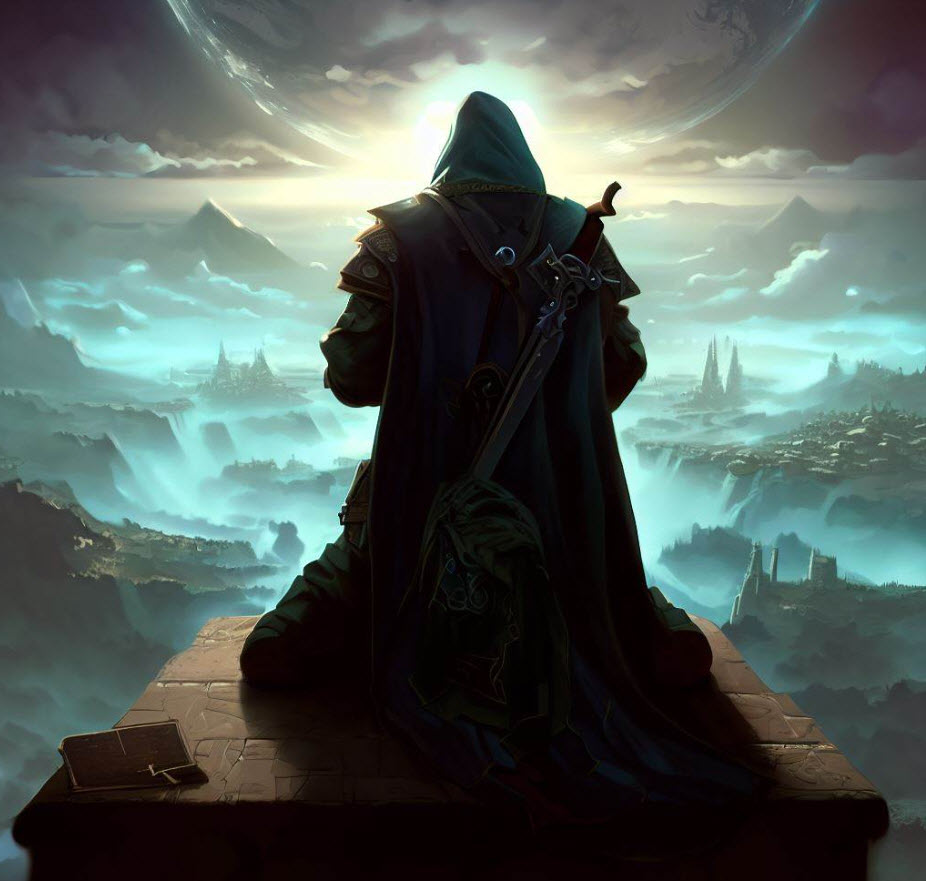
Economic Realism in a Magical World
Towns near dungeons should not be easy shops for magical items. They should function as dynamic parts of the world where obtaining resources requires wit, negotiation, and possibly a hefty fee. Let players feel the weight of their in-game financial decisions. A sword may be worth its weight in gold, but what is the price of a resurrection spell?
Timing and Campaign Duration
An often overlooked but vital aspect of the campaign is the management of in-game and real-world time. If a wizard spends six months crafting spells, that's six months they are absent from the storyline. These time commitments should be reflected in both in-game and real-world timelines, adding another layer of strategy and planning for the players.
Being a Dungeon Master
Being a Dungeon Master is not a leisurely pastime; it's an intricate balancing act. It demands a level of commitment equivalent to, if not exceeding, the players' own investment in the game. A poorly managed campaign can render even the most meticulously crafted worlds unengaging. Meanwhile, a well-balanced, meticulously managed campaign can offer endless possibilities and countless hours of enjoyment. So, before you roll for initiative, consider the world you want to build and the experience you aim to offer. In the end, both Dungeon Masters and players will reap the rewards of a game well played.
Read more about The Art of Dungeon Mastering
